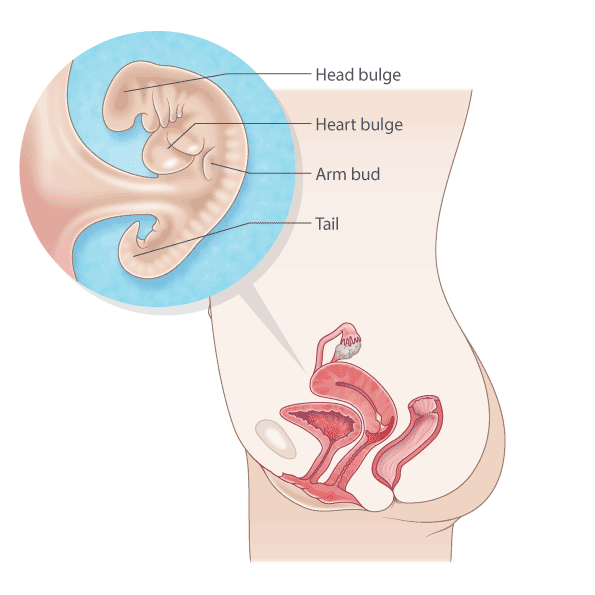You at 6 weeks pregnant
Your sense of smell might be stronger, and ordinary smells might make you feel sick. It’s the same with your appetite and sense of taste. Watch out for dizzy spells – if you’re feeling faint, make sure you sit down.
And if you have any bleeding or cramping, call your GP.

Starting your pregnancy care
If you’ve just found out or think that you’re pregnant, make an appointment to see your GP to start your pregnancy care.
Your GP will:
- organise some routine tests, including a blood test to confirm your pregnancy
- work out your estimated due date
- check your health
- talk with you about pregnancy care options
- refer you to the health professionals you’d like to care for you or to the place where you’d like to give birth
- recommend extra tests or an early ultrasound, depending on your age, medical history and previous pregnancies.
You’re more likely to be happy with your birth experience if you have the same person, or group of people, looking after you through pregnancy, labour and birth. It’s a good idea to ask your GP about how this might work for you.
Looking after yourself and baby
You probably won’t know yet if you’re pregnant. If you are, this is an important time for your baby’s development. If there’s any chance you could be pregnant, check with your GP that any medicines you’re taking or skincare products you’re using are OK for your baby.
It’s also a good idea to talk about any lifestyle changes you need to make. For example, if you smoke or vape, drink alcohol or use other drugs, you could ask your doctor for advice about quitting. If you have a partner, it’s important that they try to quit too.
It’s also important to eat healthy foods, take a folic acid supplement, and avoid foods that could make you sick or harm your baby.
Regular physical activity during pregnancy is good for you and your baby. It can help you feel physically and emotionally well.
Immunisation during pregnancy is important for protecting yourself and your baby. Your GP or immunisation provider can tell you more about recommended vaccinations during pregnancy.
Your baby when you’re 6 weeks pregnant
Overall, your baby looks a bit like a tadpole and is about 5 mm from head to tail. On an ultrasound (which isn’t usually done at this stage), your baby looks like a tiny bright dot, with their developing heart beating quickly and rhythmically.
Here are other key developments:
- Your baby’s heart has begun to beat – about 24 days after conception.
- Small buds are appearing at the top and bottom of your baby – these will become your baby’s arms and legs.
- The neural tube closes over the brain and bottom of the spinal cord.